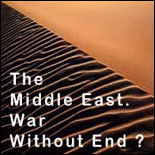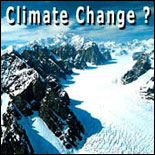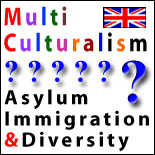Source:
Originally published in American
Renaissance, July-August Issue, 1997
The Myth of Diversity
Seldom have so many pretended to
believe something so absurd
by Jared Taylor
The idea that "diversity" is one of the country's
great strengths is now so firmly rooted that virtually
anyone can evoke it, praise it, and wallow in it without
fear of contradiction. It has become one of the great
unassailably American ideas, like democracy, patriotism,
the family, or Martin Luther King.
The President of the United States glories in diversity.
In May, 1995, in a message recognizing the Mexican holiday,
Cinco de Mayo, William Clinton said, "The Fifth of
May offers all of us a chance to celebrate the cultural
diversity that helps to make our nation great." A
few days later, when he designated May as Asian/Pacific
American Heritage Month, he said, "With the strength
of our diversity and a continued commitment to the ideal
of freedom, all Americans will share in the blessings
of the bright future that awaits us." In his 1996
speech accepting the nomination for President, he asked
the audience to look around the hall and take heart in
how varied the Democratic party was.
In his 1996 Columbus Day proclamation, he said, "The
expedition that Columbus . . . began more than 500 years
ago, continues today as we experience and celebrate the
vibrant influences of varied civilizations, not only from
Europe, but also from around the world. America is stronger
because of this diversity, and the democracy we cherish
flourishes in the great mosaic we have created since 1492."
Appeals to diversity are not just for domestic consumption.
In a 1996 speech before the Australian parliament, President
Clinton noted that both the United States and Australia
were becoming increasingly diverse, and added, "And,
yes, we [Australia and America] can prove that free societies
can embrace the economic and social changes, and the ethnic,
racial and religious diversity this new era brings and
come out stronger and freer than ever."
Hillary Clinton feels the same way. In February, 1995,
she spoke to the students of her former high school in
the Chicago suburb of Park Ridge. She noticed there were
many more non-whites among the students than when she
was a student, 30 years earlier. "We didn't have
the wonderful diversity of people that you have here today,"
said Mrs. Clinton. "I'm sad we didn't have it, because
it would have been a great value, as I'm sure you will
discover."
Diversity has clearly become one of those orotund, high-sounding
sentiments with which politicians lard their speeches.
Of course, the idea that diversity--at least of the kind
that Mr. and Mrs. Clinton are promoting--is a great advantage
for America is one of the most obviously stupid propositions
ever to see the light of day.
Nevertheless there is one kind of diversity that is an
advantage. A contractor, for example, cannot build houses
if he hires only electricians. He needs carpenters, plumbers,
etc.--a diverse work force. However, functional diversity
of this kind is not what the Chief Executive is on about.
He is talking about largely non-functional differences
like race, language, age, sex, culture and even whether
someone is homosexual. One might call this status diversity.
What advantages would a contractor get from a mixed work
force of that kind? None. What are the advantages the
United States gets from a racially mixed population? None.
The idea that status diversity is a strength is not merely
a myth, but a particularly transparent one. Explaining
why diversity is bad for a country is a little like explaining
why cholera is bad for it; the trick is to understand
how anyone could possibly think it was good.
In fact, diversity became a strength after the fact.
It became necessary to believe in it because skepticism
would be "racist." Otherwise intelligent people
began to mouth nonsense about diversity only because of
the blinding power of the race taboo. After diversity
began to include sex, mental disabilities, perversions,
and everything else that was alien or outlandish, to disbelieve
in the power of diversity was to show oneself to be "intolerant"
as well as "racist."
Of course it is only white societies--and white groups
within multi-racial societies--that are ever fooled by
guff about diversity. Everyone else recognizes the Clinton-Harvard-New
York Times brand of diversity for exactly what it is:
weakness, dissension, and self-destruction.
Immigration
Despite President Clinton's view that "diversity"
started with Columbus, for most of its history the United
States was self-consciously homogeneous. In 1787, in the
second of The Federalist Papers, John Jay gave thanks
that "Providence has been pleased to give this one
connected country to one united people, a people descended
from the same ancestors, speaking the same language, professing
the same religion, attached to the same principles of
government, very similar in their manners and customs
. . . ."
This is not exactly a celebration of diversity, nor was
Jay an eccentric. Benjamin Franklin, Thomas Paine, and
Thomas Jefferson were all explicit about wanting the United
States to be a white country, and in 1790 the first federal
naturalization law required that applicants for citizenship
be "free white persons." Until 1965, it was
very difficult for non-whites to immigrate to the United
States and become citizens (an exception being made for
the descendants of slaves). Immigration law was explicitly
designed to keep the United States a white nation with
a white majority. It was only in the 1950s and 60s that
the country turned its back on nearly 200 years of traditional
thinking about race and began its long march down the
road to nowhere.
Once the country made the fatal assumption that race
was a trivial human distinction, all else had to follow.
Congress abolished not only Jim Crow and legal segregation
but, with the Civil Rights Act of 1964, put an end to
free association as well. The Immigration and Nationality
Act Amendments of 1965, which abolished national origins
quotas and opened immigration to all nations, was a grand
gesture of anti-racism, a kind of civil rights law for
the entire world.
As has been pointed out in such books as Lawrence Auster's
The Path to National Suicide and Peter Brimelow's Alien
Nation, the backers of the immigration bill were at pains
to explain that it would have little effect on the country.
"Under the proposed bill," explained Senator
Edward Kennedy, "the present level of immigration
remains substantially the same. Secondly, the ethnic mix
will not be upset. Contrary to charges in some quarters,
it will not inundate America with immigrants from any
one country or area." The senator suggested that,
at most, 62,000 people a year might immigrate.
When President Lyndon Johnson signed the bill into law,
he also downplayed its impact: "This bill that we
sign today is not a revolutionary bill. It does not affect
the lives of millions. It will not reshape the structure
of our daily lives, or really add importantly to either
our wealth or power."
The point here is not that the backers were wrong about
the bill--even though in 1996, for example, there were
a record 1,300,000 naturalizations and perhaps 90 percent
of the new citizens were non-white. The point is that
"diversity" of the kind that immigration is
now said to bless us with was never even hinted at as
one of the law's benefits.
No one dreamed that in just 20 years ten percent of the
entire population of El Salvador would have moved to the
United States or that millions of mostly Hispanic and
Asian immigrants would threaten to reduce whites to a
racial minority in California by 1998. In 1965, before
the discovery that "diversity is our strength,"
most people would have been shocked by the thought of
such population changes.
Today, the intellectual climate is different, but in
entirely predictable ways. "Racism" looms ever
larger as the greatest moral offense a white person can
commit, and anyone who opposes the arrival of yet more
non-whites cannot but be "racist." There is
therefore no longer any moral basis for opposing the prospect
of minority status for whites, and what would have been
an unthinkable prospect before 1965 must now be seen as
an exciting opportunity. Thus did diversity become a "strength,"
despite the suspension of disbelief required to think
it so.
This is a perfect example of an assertion, for purely
ideological reasons, of something obviously untrue. Like
the equality of the races, the equivalence of the sexes,
the unimportance of heredity, the normalcy of homosexuality,
and the insignificance of physical or mental handicap,
the strength of diversity is one of a whole series of
monstrous absurdities on which liberalism depends.
Having started with race, diversity now includes just
about anything. Feminists, angry people in wheel chairs,
AIDS carriers, militant homosexuals, and people who would
rather speak Spanish than English have all taken much
of their style and impetus from the civil rights movement.
Demands for "inclusiveness" almost always include
the language of grievance and compensation pioneered by
blacks. Fat people fight discrimination, ugly people struggle
against "lookism," and at least one local government
has required that the stage set for a strip tease show
be wheel-chair accessible. Anyone who opposes the glorification
of the alien, the abnormal, and the inferior can be denounced
with much fanfare and a huge sense of superiority. The
metastasis of diversity is a fascinating story, but the
disease began with race.
Occasionally a mainstream author sniffs around the edges
of the population problem. At some risk to his professional
respectability, columnist Scott McConnell of the New York
Post has pointed out that if it will be such a good thing
for whites to become a minority, there is no reason to
wait until the next century. We could throw open the borders
right now and become a minority in just a few years. "Why
deny ourselves and our children the great benefits of
Third Worldism that we are planning for our grandchildren?"
he asks.
Advantages of Diversity
On those rare occasions when people actually attempt
to defend diversity, the one claim they make with any
semblance of conviction is that its advantages will become
evident as the world becomes more "international."
It will be a great thing to have citizens from all around
the world as nations have more and more contact; specifically,
our "international" population will boost American
exports. Of course, since this view is based on the assumption
that people communicate better with people like themselves,
it is an argument against national diversity. If it takes
a Korean to deal with the Koreans, how are Americans supposed
to get along with the Koreans who live in America?
If anyone really thought a diverse population is good
for trade, we would presumably be adjusting the mix of
immigrants in accordance with trade potential. There would
be no point in admitting Haitians, for example, since
Haiti is a pesthole and never likely to be an important
trade partner. After Canada, Japan is our largest trading
partner. Does this mean we need more Japanese? No one
ever talks about immigration this way, because no one
really believes immigration has anything to do with promoting
exports.
The example of Japan in fact shows just how little racial
diversity has to do with international trade. Japan is
one of the most racially homogeneous nations in the world.
By American standards, Japanese are hopeless "racists,"
"homophobes," "sexists," and "nativists."
They even eat whales. Here is a country that should therefore
be a complete failure in the international economy--and
yet it is probably the most successful trading nation
on earth.
Taiwan and Korea are close behind, with China now recording
huge trade surpluses with the United States. These countries
are even more closed and exclusionist than Japan. If they
could ever be made to understand the American notion of
diversity, Asians would politely wait until we had left
the room and then die laughing. Germany is likewise one
of the world's great exporting nations. Who would dream
of thinking this was due to the presence of Turkish Gastarbeiter.
The fact that millions of Mexicans now live in the United
States does not make our products more attractive to anybody--certainly
not to Mexico, which already has plenty of the things
Mexicans know how to make. "Diversity" adds
exactly nothing to our international competitiveness.
Racial diversity is also supposed to bring cultural enrichment,
but what are its real achievements? The culture of ordinary
Americans remains almost completely untouched by the millions
of non-white immigrants who have arrived since 1965. Perhaps
they have now heard of the Cinco de Mayo festival, but
even if they live in California or Texas how many Americans
know that it commemorates a Mexican military victory against
the French?
Immigrants do not teach us about Cervantes or Borges
or Lady Murasaki and it would be silly to think they did.
Chinese stowaways do not arrive with a curator's knowledge
of Ming ceramics and copies of the Tao-te Ching in their
pockets. The one cultural artifact immigrants bring with
them is their language--which increasingly becomes an
Americanized farrago that would astonish their countrymen--but
the so-called "culture" of immigrant settlements
is a tangle of peasant folkways, Coca-Cola, food stamps,
T-shirts with writing on them, and truculence.
High culture and world history cross borders by themselves.
Who in America first learned of Tchaikovsky or the Mayans
from an immigrant? Nearly every good-sized American city
has an opera company but it wasn't established by Italians.
What, in the way of authentic culture have Miami's dwindling
non-Hispanic whites gained from the fact that the city
is now nearly 70 percent Hispanic? Are the art galleries,
concerts, museums, and literature of Los Angeles improved
by the fact that its population is now nearly half Hispanic?
How has the culture of Washington, D.C. or Detroit been
enriched by majority-black populations? If immigration
and diversity bring cultural enrichment, why is that the
places being the most intensively enriched are the places
where whites least want to live? Like the trade argument,
the "cultural enrichment" argument collapses
with a pinprick.
It is true that since 1965 more American school children
have begun to study Spanish, but fewer now study French,
German, or Latin. How is this an improvement? People can,
of course, study any language they want without filling
the country with immigrants. Virtually all Norwegians
speak excellent English, but the country is not swarming
with Englishmen.
Any discussion of the real advantages of ethnic diversity
usually manages to establish only one benefit people really
care about: good ethnic restaurants. Probably not even
William Clinton would claim that getting an authentic
Thai restaurant in every city is a major national objective.
Public Services
At a different level, it is now taken for granted that
public services like fire and police departments should
employ people of different races. The theory is that it
is better to have black or Hispanic officers patrolling
black or Hispanic neighborhoods. Here do we not have an
example of one of diversity's benefits?
On the contrary, this is merely the first proof that
diversity is a horrible burden. If all across America
it has been demonstrated that whites cannot police non-whites
or put out their fires it only shows how divisive diversity
really is. The racial mix of a police force--touted as
one of the wonders of diversity--becomes necessary only
because officers of one race and citizens of another are
unable to work together. The diversity that is claimed
as a triumph is necessary only because diversity does
not work.
The same is true of every other effort to diversify public
services. If Hispanic judges and prosecutors must be recruited
for the justice system it means whites are incapable of
dispassionate justice. If non-white teachers are necessary
"role models" for non-white children it means
that inspiration cannot cross racial lines. If newspapers
must hire non-white reporters in order to satisfy non-white
readers it means people cannot write acceptable news for
people of other races. If blacks demand black television
newscasters and weathermen, it means they want to get
information from their own people. If majority-minority
voting districts must be set up so that non-whites can
elect representatives of their own race, it means that
elections are nothing more than a racial headcount. All
such efforts at diversity are not expressions of the inherent
strength of multi-racialism; they are admissions that
it is a debilitating source of tension, hostility, and
weakness.
Just as the advantages of diversity disappear upon examination,
its disadvantages are many and obvious. Once a fire department
or police force has been diversified to match the surrounding
community, does it work better? Not if we are to judge
from the never-ending racial wrangles over promotions,
class-action bias law suits, reverse discrimination cases,
acrimony over quotas and affirmative action, and the proliferation
of racially exclusive professional organizations. Every
good-sized police department in the country has a black
officers' association devoted to explicit, racially competitive
objectives. In large cities, there are associations for
Asian, Hispanic, and even white officers.
Many government agencies and private companies hire professional
"diversity managers" to help handle mixed work
forces. This is a new profession, which did not exist
before the idea that diversity is a strength. Most of
it boils down to trying to bridge the gaps between people
who do not understand each other, but since it concerns
subjects about which management is afraid to ask too many
questions, some of it is pure snake oil.
Maria Riefler has trained Nestle, Walt Disney, Chrysler
and Chevron. She likes to divide employees into groups
that represent the body and the "triune brain."
This is supposed to help them understand how "stereotypes
are hidden deep within the primitive part of ourselves."
It is a very peculiar "strength" that requires
the constant attention of experts and other bumcombe artists.
Like hiring black police officers to patrol black neighborhoods,
"diversity training" is an admission that a
mixed work force is a liability.
This is the merest common sense; it is hard to get dissimilar
people to work together. Indeed, a large-scale survey
called the National Study of the Changing Work force found
that more than half of all workers said they preferred
to work with people who were not only the same race as
themselves, but were the same sex and had the same level
of education. Even more probably felt that way but were
afraid to say so.
These days there is much chirping about how diversity
is going to improve profits. American companies are hard-headed
about profits. A great deal of research, much of it quantitative,
goes into decisions about product lines, new markets,
establishing joint ventures, issuing stock or moving the
head office. If there has been any serious research showing
that "diversity" improves profits it would have
been first-page news long ago. Not even the most desperate
data massage seems to have produced a study that can make
such a claim.
Just how big a headache diversity actually is for companies
is clear from the endless stream of news stories about
corporate racial discrimination. In just one month--November,
1996--"diversity" made quite a lot of news.
Texaco agreed to spend $176 million on black victims of
company "racism," and lawyers for the firm that
sued Texaco were getting about ten calls a day from people
asking how to file for discrimination settlements. Just
a few days later, 22 former employees of the nation's
largest printing company, R.R. Donnelley and Sons, sued
over what they claimed was $500 million worth of racism.
In the same month, both the U.S. State Department and
the Bureau of Alcohol, Tobacco, and Firearms settled multi-million
dollar class action discrimination suits brought by blacks.
Likewise in November, three blacks brought a class action
suit against an Avis Rent-A-Car franchise with outlets
in North and South Carolina, claiming they had been turned
away because of race. Within the month, the owner of Avis
said it would break its contract with the franchisee,
and hired a law firm to check up on other Avis operators.
Every one of these cases, which are expensive, time-consuming,
and emotionally damaging, is a consequence of racial diversity--and
these were just the cases that made the news.
It would be edifying to count the number of public and
private organizations that exist in the United States
only because of its diverse population, and that are not
needed in places like Japan or Norway. The U.S. Civil
Rights Commission, Equal Employment Opportunity Commission,
Office of Federal Contract Compliance, the Justice Department's
Civil Rights Division, and every state and local equivalents
of these offices exist only because of racial diversity.
Every government office, every university, every large
corporation, and every military installation has employees
working full-time on affirmative action, discrimination
claims, and other "diversity" issues.
Countless outreach programs, reconciliation commissions,
blue-ribbon panels, and mayoral commissions fret professionally
about race every day. Not one of these would be necessary
in a nation of a single race. There must be tens of thousands
of Americans consuming hundreds of millions of dollars
every year enforcing, adjusting, tuning, regulating, and
talking pure nonsense about the racial diversity that
is supposed to be our strength.
Indeed, Tom McClintock, a former candidate for controller
of the state of California estimated that before the 1996
state ballot initiative was approved to abolish racial
preferences, the annual cost just to administer California's
affirmative action programs was from $343 million to $677
million. This figure did not include the cost of private
preference programs or the cost of state and local anti-discrimination
machinery, none of which was affected by the 1996 measure.
If diversity were a strength people would practice it
spontaneously. It wouldn't require constant cheer-leading
or expensive lawsuits. If diversity were enriching, people
would seek it out. It is in private gatherings not governed
by some kind of "civil-rights" law that Americans
show just how much strength and enrichment they find in
diversity. Such gatherings are usually the very opposite
of diverse.
Other Races
Generally speaking, whatever timid opposition to diversity
that ever arises is characterized as the whining of resentful,
ignorant whites. Non-whites are thought to have a better
appreciation of the importance of inclusiveness. This
is just so much more nonsense. Now that immigration has
added Hispanics and Asians to the traditional black-white
racial mix, fault lines are forming in all directions.
Though we are told over and over that it is ignorance
and lack of contact that cause antipathy, it is groups
that have the most contact that most dislike each other.
This is why "outreach" and "bridge building"
do not work, as even the New York Times unintentionally
revealed in a June 18, 1990 headline: "Ethnic Feuding
Divides Parade for Harmony."
The idea that hostility is cured through contact is now
enshrined as part of the diversity myth. George Orwell
touched on this in his essay, England Your England:
"During
the war of 1914-1918 the English working class were in contact
with foreigners to an extent that is rarely possible. The
sole result was that they brought back a hatred of all Europeans,
except the Germans, whose courage they admired."












